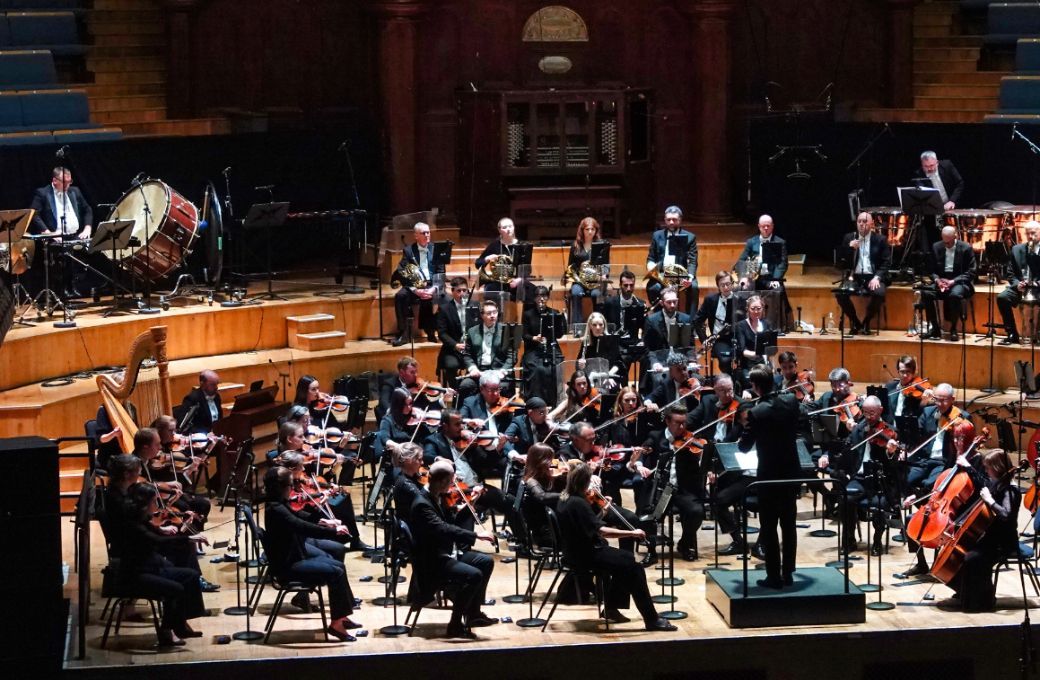Sometimes three pieces of music in a programme just delight. In a carefully crafted programme conductor Mihhail Gerts took the Ulster Orchestra on an unusual journey with folk-inspired music from Hungary and Germany, with works that may not instantly spring to mind.

Beginning the evening was the all too rarely heard Symphonic Minutes by Ernst von Dohnányi. A short suite of five movements lasting approximately 13 minutes, written in 1933 for quite a substantial orchestra, it almost follows the pattern one may expect in a symphony. The opening Capriccio was bright and highly articulate as Gerts balanced woodwinds and percussion delicately. A movement entitled Rapsodia was the highlight with expressive playing from guest cor anglais Emily Cockbill; coupled with very gentle rubato from Gerts it created poetry in this all too brief second movement. The central Scherzo had vivid changes of colour, handled with care. In the Tema con variazioni, the communicative cor anglais solos entranced. The rondo finale, which had a moto perpetuo feel, took flight in this enthralling performance.
After the substantial hiatus of an overly long platform reset, Vadym Kholodenko graced the stage of the Ulster Hall to give a thoughtful performance of Bartók’s attractive Third Piano Concerto. The opening phrases from the pianist were surprisingly understated but as the movement unfolded the louder sections were more impactful because of this restraint; maintaining graceful playing he performed with delicacy. The balance of Kholodenko’s hands in the second movement was exquisite, the right hand projecting effortlessly without being harsh, whilst the left had a richness and warmth and he knew how to subtly change the pianistic colours effectively to emphasise the different textures. The final movement was engaging and beautifully executed. Throughout, Gerts followed Kholodenko with the work sounding fresh and organic; neither conductor nor pianist having a point to prove, they let the music speak in what was a simple and honest interpretation.
A considered encore followed from Kholodenko with the enchanting Poulenc’s L'Embarquement pour Cythère, its cantabile melody and gentle humour bringing a lovely ending to the first half of the concert.
Echoing the opening work, and creating symmetry, was Schumann’s five movement “Rhenish” Symphony. Gerts' left-hand gestures were subtle and expressive while the right was rhythmical and the players responded to these communicative instructions with understanding and conviction. The opening was radiant and majestic with some remarkable French horn playing. The folk-like character of the second movement was fully realised, whilst in the third the phrasing and pacing was tastefully executed. The orchestral playing in the fourth movement was excellent and the finale had stateliness and a sense of momentum.
The whole evening was a success on some many levels. There is something special about this orchestra playing early Romantic music — whether it be Schumann or Mendelssohn or music that requires a smaller body of strings, as in the Bartók, in Ulster Hall. The music sounds right in that acoustic and the players seem to give their best. Gerts seemed to naturally know how to use the acoustics to maximum effect making for a memorable evening indeed.


